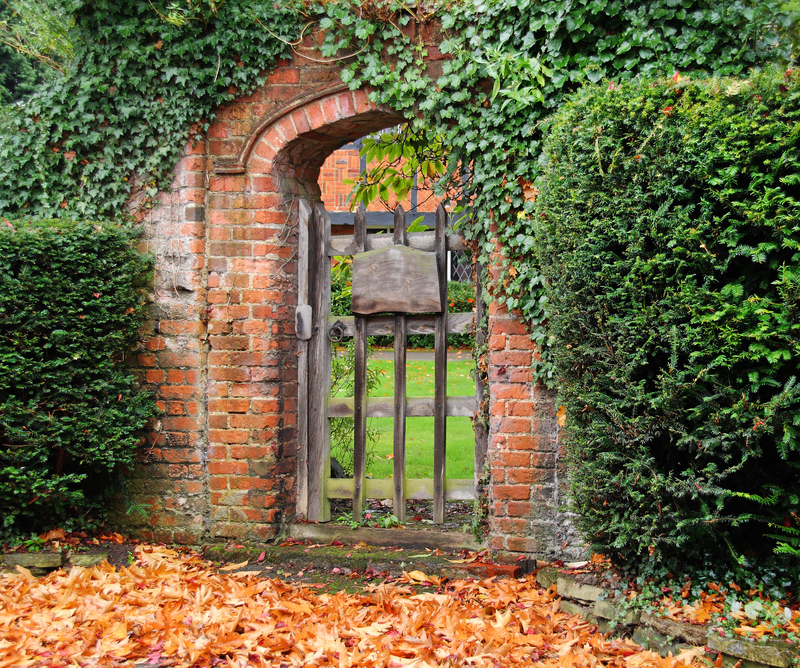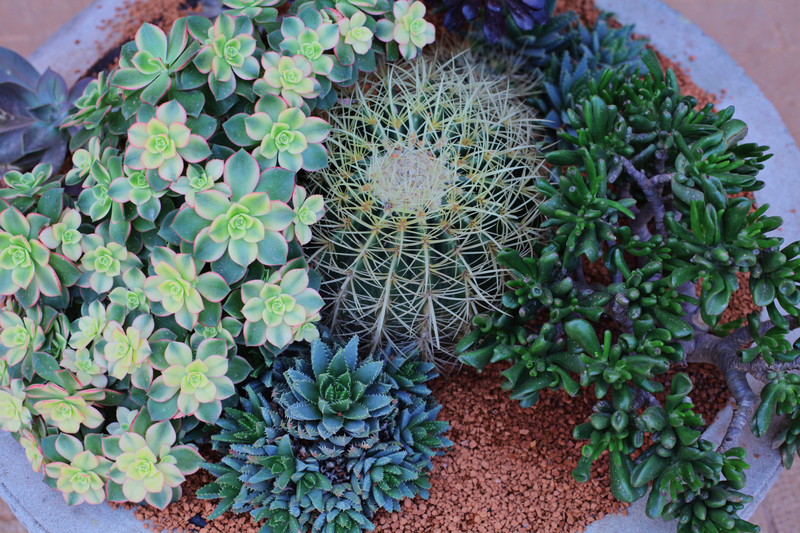9 vital tips to launch your gardening experience successfully
Posted on 28/05/2025
9 Vital Tips to Launch Your Gardening Experience Successfully
Are you ready to begin your gardening journey? Whether you're an absolute beginner or just looking for a fresh start, following the right gardening tips from the very beginning can set the stage for a lush, thriving garden. In this comprehensive guide, we'll share the most important advice to help you succeed and grow your passion for gardening into a lifelong hobby. Discover the 9 vital tips to launch your gardening experience successfully and watch your garden flourish like never before!
Why Start a Garden? The Benefits of Gardening
Gardening offers much more than beautiful plants and fresh produce. It promotes mental well-being, provides physical exercise, and encourages sustainable living. From the satisfaction of watching seeds sprout to harvesting your own food, gardening delivers many rewards:
- Stress reduction and improved mood
- Access to healthy, homegrown food
- Enhanced creativity and learning
- Connection to nature and the environment
- Opportunities to bond with family and community
With these exceptional benefits in mind, let's dive into the best tips to kickstart your gardening adventure successfully.

1. Define Your Gardening Goals and Vision
Before you dig in, get clear about what you want from your gardening experience. Are you looking to grow vegetables, herbs, beautiful flowers, or simply create a relaxing outdoor space? Understanding your goals helps shape the rest of your choices, including location, plant selection, and garden layout.
- Ask yourself:
- What do I want to grow? (Vegetables, fruits, flowers, shrubs, or a mix?)
- How much time can I dedicate weekly?
- Is my primary goal beauty, food production, or relaxation?
Setting a clear goal streamlines your gardening planning and increases your chance of success.
2. Start Small to Ensure Success
Ambition is admirable, but starting with a manageable garden size is a wise approach. It's easy to become overwhelmed by a large plot, especially if you're new to gardening. Choose a small area, perhaps a few raised beds or several containers, to practice and hone your skills before expanding.
- Benefits of starting small:
- Less time and effort required for maintenance
- Lower cost of materials and plants
- Easier to troubleshoot problems
- Faster learning from mistakes and successes
Launching your first gardening experience in stages can make it more enjoyable and sustainable.
3. Choose the Right Location for Your Garden
Location is a crucial factor in gardening success. Select an area that receives at least 6 hours of direct sunlight per day. Pay attention to the quality of the soil, accessibility to water, and protection from strong winds.
- Checklist for choosing the best garden spot:
- Full sun exposure (at least 6 hours daily, more for vegetables)
- Level ground with good drainage
- Close to a water source for easy irrigation
- Away from large trees whose roots and shade can compete with garden plants
- Sheltered spot if you live in a windy area
Remember: Plants need sunlight, water, and nutrients to thrive, so the right location makes all the difference!
4. Test and Prepare Your Soil
Good soil is the foundation of a healthy garden. Even if you have limited space, you can maximize your results by knowing your soil's characteristics and preparing it properly. Begin by testing your soil's pH and nutrient levels with an inexpensive kit, or by sending samples to a local extension service.
Key soil preparation steps:
- Remove weeds and debris from your garden bed
- Loosen the soil at least 8-12 inches deep for healthy root growth
- Incorporate compost or organic matter to enrich nutrients and improve texture
- Adjust pH (add lime for acidic soil, sulfur for alkaline, if needed)
- Mulch with straw, wood chips, or leaf litter to protect and nurture the soil
Healthy soil helps plants resist disease and grow vigorously - don't skip this important step in your gardening journey!
5. Select Suitable Plants for Your Climate and Space
A key factor in launching your gardening experience successfully is choosing the right plants. Start with options that suit the climate in your area (your USDA hardiness zone) and the environmental conditions of your garden.
- Beginner-friendly plant suggestions:
- Vegetables: lettuce, radishes, beans, tomatoes, zucchini
- Herbs: basil, mint, chives, parsley
- Flowers: marigolds, zinnias, sunflowers, cosmos
- Native plants--well-suited to local soil and weather
Read plant labels or seed packets, paying close attention to sun and water needs, mature size, and timing.
Tip: Always prioritize quality seeds or healthy starter plants from reputable nurseries or garden centers.
6. Learn the Basics of Watering and Fertilizing
Proper watering and nutrition are essential for plant health. Overwatering, underwatering, or incorrect fertilization can lead to disappointing results.
- Watering tips for successful gardening:
- Water early in the morning or late in the afternoon
- Irrigate the soil, not the leaves, to prevent diseases
- Use a soaker hose or drip irrigation for efficiency
- Check moisture by inserting your finger 1 inch into the soil
- Fertilizing guidelines:
- Use organic matter (compost, manure) as your primary fertilizer
- Follow instructions on any commercial fertilizers
- Don't over-fertilize--this can burn roots or pollute groundwater
Learning these basic care routines early in your gardening adventure will help ensure your plants thrive and produce abundantly.
7. Practice Integrated Pest Management
Protect your garden naturally with integrated pest management (IPM). This approach combines smart planning, observation, and environmentally safe solutions for pest and disease control.
- Essential pest management techniques:
- Encourage beneficial insects (ladybugs, lacewings, bees)
- Use row covers or physical barriers against pests
- Rotate crops each season to disrupt pest cycles
- Use neem oil or insecticidal soaps when needed (always read labels!)
- Handpick obvious pests like caterpillars or beetles
Healthy soils and strong plants naturally resist many pests--focus on prevention first, and intervene organically whenever possible!
8. Stay Organized with a Gardening Journal or Planner
Keeping track of your gardening progress is both smart and rewarding. Use a notebook, spreadsheet, or printable planner to document what you plant, when you sow or transplant, fertilizer applications, weather trends, and results.
- Benefits of a gardening journal:
- Provides a learning history to improve future gardening efforts
- Helps with crop and variety selection
- Reminds you about maintenance tasks and timing
- Captures your successes and challenges to share with others
Staying organized is a key habit for gardening success, especially when expanding your growing area or adding new plant varieties.
9. Cultivate Patience, Curiosity, and Community
Last but certainly not least, successful gardening relies on patience, continuous learning, and building connections. Plants grow at their own pace, and the weather is often unpredictable. Mistakes and failures are simply part of every gardener's education.
- Ways to cultivate a positive gardening mindset:
- View setbacks as learning opportunities
- Explore online forums, social media groups, or local garden clubs for advice
- Share surplus harvest or knowledge with neighbors and friends
- Experiment with new plants and recipes
Join a supportive gardening community--the more you network with fellow gardeners, the faster you'll learn and the more enjoyable your journey will be!

FAQs About Launching Your Gardening Experience
What tools do I need to start gardening?
You only need a few basics: a trowel, a hand fork, pruners, a watering can or hose, gloves, and a rake. As your skills expand, you can invest in additional equipment.
How much time does a garden need each week?
A small raised bed or several containers may only take 1-2 hours weekly to maintain. Larger gardens usually require more commitment. Regular observation makes daily care quick and efficient.
Which are the easiest vegetables for beginners?
Try radishes, lettuce, peas, bush beans, and cherry tomatoes. These are quick-growing, forgiving, and perfect for launching your first gardening experience.
Conclusion: Your Successful Gardening Journey Starts Now!
Launching your gardening experience successfully is all about planning, observation, and a willingness to learn. By following these nine essential tips, you'll create a stunning and productive garden--even with little experience.
- Define your goals and select a manageable garden size
- Choose an ideal location with good sun and soil
- Focus on soil health, water, and plant selection
- Embrace sustainable practices, stay organized, and build community
With patience, curiosity, and a bit of dirt under your nails, you'll soon enjoy the satisfaction and beauty of a flourishing garden!
Ready to start? Follow these vital gardening tips for beginners and experienced growers alike, and watch your gardening adventure blossom into lasting joy.
Latest Posts
Creating a Garden Retreat for Dog-Loving Households
Your roadmap to perfecting orchid care
Harness Tranquility with Inspiring Zen Garden Concepts

